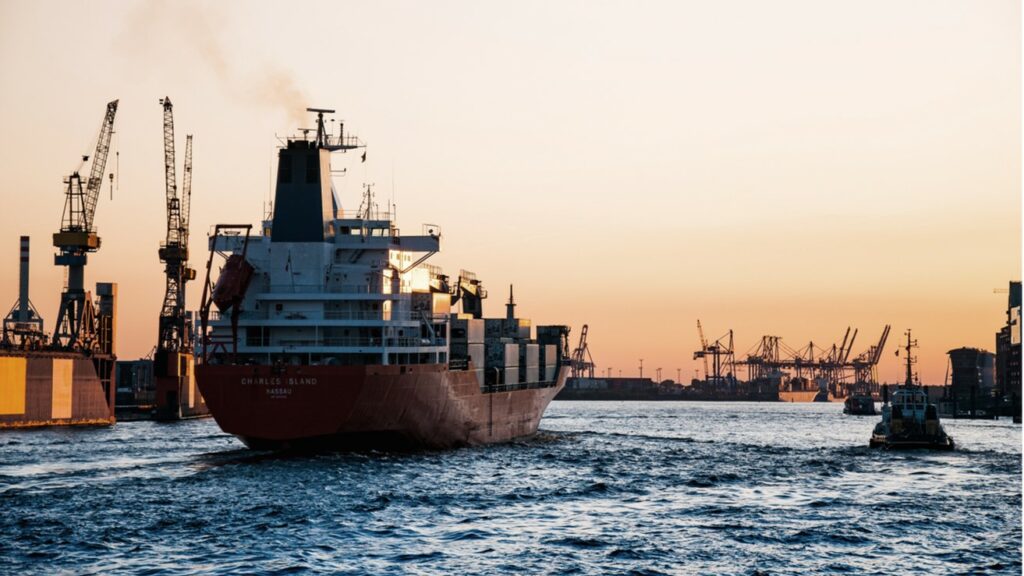When speaking to Otto International and Bonprix representatives, the many hurdles the shipping industry has recently faced become clear. But, also clear is the comradery both teams feel after their intense collaboration over the past year and a half, helping everyone to achieve the best result possible.

The COVID-19 pandemic has brought with it completely unprecedented effects on people’s daily lives, and the daily operations of nearly every business on the planet. Few industries have been more affected than shipping, which has essentially been in a state of crisis since news of the novel coronavirus first broke at the beginning of 2020.
Throughout, Otto International’s shipping department has made every effort to keep customers orders reaching their intended destination, working more closely and flexibly with valued customers like Bonprix than ever before.
But what problems does the supply chain currently face, and how did we get here? Queenie Wong, OI’s Global Shipping General Manager, says that “generally, cargo volume has increased or is the same as it has been since the start of the pandemic, but capacity is constantly changing because of lockdown policies and restrictions.”
Queenie explains that as our destination markets now attempt to return to normal, demand is, in some locations, slowly returning to pre-COVID levels. However, as many production countries continue to grapple with the effects of the pandemic, anything from a COVID-related lockdown to a regional holiday to bad weather puts immense stress on ports, airports and rail stations already struggling to keep up.

Queenie Wong: Shipping General Manager — Otto International
“Almost every major port in in the world is congested because of COVID, this means even a slight reduction of manpower, or a port closure or ship delay of just a few hours affects everything else and puts everyone even further behind.”

Jochen Heuer: Head of Supply Chain and Controlling — Bonprix
Jochen Heuer, Bonprix’s Head of Supply Chain and Controlling, explains that the current pressure points have old roots. “It’s a long history, starting around 2010 with the pricing model certain carriers adopted. Even the lack of capacity at source countries has been longstanding; new ships have been designed and ordered but they will not enter the market until 2023.”
Despite the immense difficulty, both Jochen and Queenie agree there have been positives. “I have to be thankful for the very, very good relationship we have with our partners,” Jochen says, “especially OI’s shipping managers in different markets and the various forwarders we both work with.”
Queenie agrees: “before the pandemic we used to only check-in with each other a few times a year in formal meetings. Now we are on calls at least once a week. We cannot control the external circumstances, but we can work closely together to find solutions.
“I have to be thankful for the very, very good relationship we have [with] OI’s shipping managers… and the various forwarders we both work with.”
“Recently a major container terminal in China closed. After calling and discussing it, we agreed that we would move some of the order to another much smaller port. Yes, it meant only 10% of the order was exported, but you can also say that at least 10% was exported as opposed to none at all. This was only possible because of our collaboration and mutual trust; the customer was open-minded to OI’s proposals.”
For Jochen, the pandemic has shown the benefit of using OI’s Trader Documentation Service (TDS). “[Bonprix] rolled-out with TDS around three years ago, and because of that all of the actors in the supply chain have been provided with much more up-to-date information. It is the starting point for digitalisation across the supply chain.”
When asked about the future of their work, both Jochen and Queenie agree that the only thing that will improve the situation will be the end of the pandemic. However, they both wish for the strong collaboration to continue. “It should go beyond a meeting; it could even be outside of work. It establishes the new way of working and strengthens relationships that will mean we work even better together.” Queenie thinks that “more regular meetings with our customers means we can provide even more accurate data that will allow us to make better-informed decisions.” Jochen agrees: “we need more accurate forecasting from all parties, especially with respect to ETAs for our imports.”
While the pandemic continues, it seems that the situation for the OI and Bonprix shipping teams will not substantially improve soon. However, they look forward to continuing to work hard together to overcome whatever’s next.

